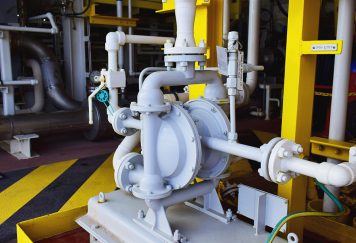In today’s competitive industrial landscape, optimizing energy usage and reducing costs are paramount for factories looking to enhance their sustainability efforts and bottom line. Energy audits have emerged as a valuable tool for factories seeking to identify saving opportunities and improve their operational efficiency. By conducting a thorough assessment of energy consumption patterns and identifying areas of wastage, factories can make informed decisions to implement energy-saving measures and drive long-term cost savings. This article explores how energy audits can benefit factories and provide actionable insights to unlock potential savings.
**Understanding the Importance of Energy Audits**
Energy audits play a crucial role in helping factories gain a comprehensive understanding of their energy usage patterns and identify opportunities for improvement. By analyzing energy consumption data, equipment efficiency, and operational processes, factories can pinpoint areas where energy is being wasted or underutilized. This detailed assessment provides a clear roadmap for implementing targeted energy-saving measures that can lead to significant cost reductions and environmental benefits.
**Identifying Energy-Efficient Solutions**
One of the key benefits of energy audits is their ability to identify energy-efficient solutions tailored to the specific needs and operations of a factory. By conducting a detailed assessment of equipment performance and energy usage, auditors can recommend upgrades, retrofits, or operational changes that can improve energy efficiency and reduce consumption. From installing energy-efficient lighting systems to optimizing HVAC systems and implementing advanced control technologies, energy audits can help factories implement cost-effective solutions to enhance their overall energy performance.
**Optimizing Equipment Performance**
Energy audits also play a critical role in optimizing equipment performance to maximize efficiency and minimize energy waste. By evaluating the condition and operation of key equipment such as motors, pumps, and heating systems, auditors can identify maintenance issues, inefficiencies, and opportunities for improvement. Implementing recommended maintenance practices, equipment upgrades, and operational adjustments can help factories enhance the performance of their equipment, reduce energy consumption, and extend the lifespan of critical assets.
**Enhancing Operational Practices**
In addition to evaluating equipment performance, energy audits can also help factories optimize their operational practices to minimize energy waste and improve overall efficiency. By assessing production processes, scheduling practices, and energy management strategies, auditors can identify opportunities to streamline operations, reduce downtime, and optimize energy usage. Implementing best practices such as energy-efficient scheduling, process optimization, and employee training can help factories achieve sustainable energy savings and enhance their operational performance.
**Driving Cost Savings and Environmental Benefits**
By leveraging the insights gained from energy audits, factories can drive significant cost savings and environmental benefits. Implementing energy-saving measures identified during the audit process can lead to reduced energy bills, lower maintenance costs, and increased operational efficiency. Moreover, by reducing energy consumption and greenhouse gas emissions, factories can enhance their sustainability profile, meet regulatory requirements, and contribute to a greener future.
**Unlocking Potential Savings with Energy Audits**
Energy audits offer factories a valuable opportunity to identify saving opportunities, enhance operational efficiency, and drive long-term cost savings. By conducting a comprehensive assessment of energy usage patterns, equipment performance, and operational practices, factories can gain actionable insights to implement targeted energy-saving measures. Through a strategic approach to energy management and continuous improvement efforts, factories can unlock their full potential for savings, sustainability, and success in today’s competitive industrial landscape.





